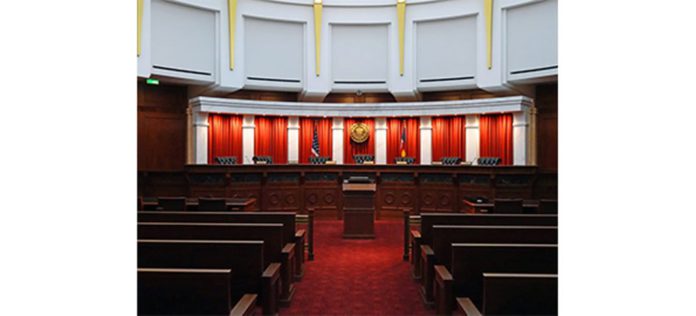
The Colorado Supreme Court on April 16 amended the continuing legal education requirements for the state’s attorneys to include two credit hours focused on equity, diversity and inclusivity.
The rule change requires attorneys to dedicate seven of the 45 required CLE hours to the category of professional responsibility, replacing the somewhat narrow term ethics. Two of those seven hours would need to be dedicated to EDI education.
Several of the state’s large bar organizations, including its affinity bar associations, advocated for the rule change this year. The addition of EDI education became a major initiative for the President’s Diversity Council, which consists of bar presidents from the Asian Pacific American Bar Association, Colorado Hispanic Bar Association, Colorado LGBT Bar Association, Colorado Women’s Bar Association, Sam Cary Bar Association, South Asian Bar Association, and the Colorado and Denver Bar Associations.
“This rule represents a small but vital step towards addressing the inequities, implicit and explicit biases, and structural barriers that undermine public confidence in our justice system,” the diversity council said in a statement.
“We’re super excited,” said Christine Hernández, a past president of the CHBA and shareholder at Hernández & Associates, about the rule’s passing. Hernández had been a contributor to the EDI CLE change throughout its journey.
“I think the truth is that the only way that we’re going to become better lawyers and have a better legal system is through mandatory EDI training,” said Sara Scott, CEO of the Center of Legal Inclusiveness, who advocated for the change. Scott said the rule change was not just about training attorneys about their own biases, prejudices or microaggressions, but was also about attorneys being able to recognize these topics in the cases they handle. “It’s about them being better lawyers to their diverse clients, and to see if there’s an undertone of racism.”
She said CLI is thrilled that the requirement passed and said she wished it required more than just the hours of EDI education — but this was a huge start, she said. Scott said she feels this action puts Colorado ahead of the curve regarding states requiring EDI training.
William Trachman, associate general counsel of the Mountain States Legal Foundation, a nonprofit public interest law firm, spoke with concern over the proposed rule change at an April 6 hearing. He said then that the foundation opposed the rule and would evaluate options to challenge it, if approved.
However, for the moment, the foundation isn’t pursuing legal action, but that hasn’t yet been ruled out, Trachman told Law Week. He said that the final version of the rule was a “dramatic” backtrack on some of the concerns he had raised at the April 6 meeting in terms of definitions and wording. With that change, he said that, for Mountain States, the final rule was an improvement for the better. Specifically, Trachman said that an important change in wording was made where the word “and” was switched to “or,” which while seeming like a minor change, the impact was huge. “Now the courses that will qualify for EDI credit can be either addressing access to the legal system or competent representation of diverse populations or recognition, mitigation, elimination of bias,” he said. “Those sorts of categories are much more in line with other states like California, that have this sort of all-encompassing non-discrimination language in their CLE requirements.”
However, he said there was still “very serious concern” about how the rule’s requirements will play out in real life. He said his organization might be concerned about the criteria used to determine whether a CLE subject fit the EDI requirements, such as whether a CLE subject was “about the right form of bias” or whether there was a political component to determining what would meet the requirements.
Hernández she said she thought the concern and opposition raised to the proposed change was about accusing people of being racist, which she said was not the intent or the idea behind the EDI CLE change. “Really, the idea is for these CLEs to be about starting conversations, and really just talking through issues that your staff or your clients deal with on a daily basis — it’s really just about conversations, not about finger-pointing,” she said.
Scott said the opposition might come from the idea that many people do not like to face their own biases. She said she thinks people don’t like to look at problems such as systemic racism because of the “ugly” and uncomfortable realities where it has placed certain minorities behind in the education, healthcare and legal professions.
“I think people think they know what implicit bias training is — when they don’t,” Scott said. She added that many of the comments in opposition to the rule that she had seen were based around implicit bias or other EDI training as being ineffective. “That’s not true.”
Hernandez said she is just thankful for the rule to have passed and to open up doors for more CLE topics.
“It was exciting to be part of a movement and have success,” Hernández said. She added that she felt thankful and excited that support for the change had come from across various bar associations. “It was more than just the diversity bars, it was more than just diverse attorneys and law students saying they need help.”

